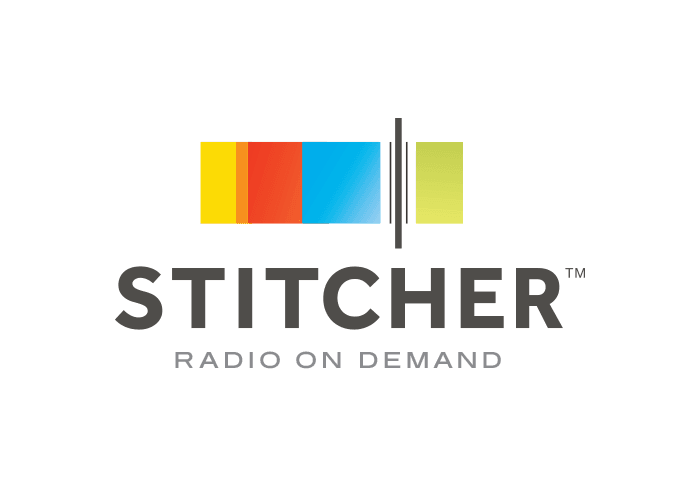In this weeks episode LIsa interviews Dr Greg Brown a medical doctor and hyperbaric specialist and medical director of Wellington Hyperbarics.
Dr Greg shares his insights on this incredible therapy following on our series on hyperbaric oxygen therapy with Dr Jason Sonners and Dr Scott Sherr previously.
Lisa has also now opened her own hyperbaric oxygen therapy clinic In Oakura, New Plymouth and you contact support@lisatamati.com to get on a discovery call to see if this is appropriate for you.
Here are some of the benefits of Hyperbaric Oxygen Therapy and discussion points in this interview:
Benefits
Improves brain tissue oxygenation
Stimulates brain tissue regeneration
Regrows nerve fibres
Forms new blood vessels and improves blood flow stimulating idle brain cells to function '
Speeds recovery and rehabilitation time
Stimulates tissue repair
Increases levels of neutrophils and nitric oxide
Reduces inflammation in the brain and body
Stimulates up-regulation of growth hormones
Reduces brain damage from swelling
Improves cognition, thinking and brain performance
Builds new collagen, skin and tissues
Reduces pain and swelling
Regrows health tissue, skin and bones,
Heals ulcers, wounds and injuries
Kills bacteria and infections making antibiotics more effective
Stimulates angiogenesis for axonal regeneration
Enhances mitochondrial function
Promotes stem cell reproduction by up to 800%
Increases cerebral blood flow
Decreases Cerebral edema
Reactivates quiescent neurons
Safe, comfortable, easy and pain free
HBOT is a non invasive treatment that can address a variety of medical conditions either as a primary or complementary therapy.
Lisa now has her LT Hyperbaric Oxygen Therapy clinic open in Oakura, Taranaki. Find out more here
Dr. Greg Brown
Dr Greg Brown has been a Medical Doctor for nearly two decades. He originally hails from the UK but is now a proud New Zealander. He has a background in general practice, military medicine, travel medicine, and nutritional and environmental medicine. Greg is the Medical Director of Wellington Hyperbarics, an expanding community-based network of clinics providing medically-supervised hyperbaric oxygen therapy for a variety of conditions, and also continues to work in general practice. He is the father of three teenagers and the husband of one very patient wife. He lives in the Wellington region with his family, an evil ginger cat, and a few productive chickens. He is a keen musician, enjoys lifting weights, and has become a Wellington coffee snob.
Personalised Health Optimisation Consulting with Lisa Tamati
Lisa offers solution focused coaching sessions to help you find the right answers to your challenges.
Topics Lisa can help with:
Lisa is a Genetics Practitioner, Health Optimisation Coach, High Performance and Mindset Coach.
She is a qualified Ph360 Epigenetics coach and a clinician with The DNA Company and has done years of research into brain rehabilitation, neurodegenerative diseases and biohacking.
She has extensive knowledge on such therapies as hyperbaric oxygen, intravenous vitamin C, sports performance, functional genomics, Thyroid, Hormones, Cancer and much more. She can assist with all functional medicine testing.
Testing Options
Comprehensive Thyroid testing
DUTCH Hormone testing
Adrenal Testing
Organic Acid Testing
Microbiome Testing
Cell Blueprint Testing
Epigenetics Testing
DNA testing
Basic Blood Test analysis
Heavy Metals
Nutristat
Omega 3 to 6 status
and more
Lisa and her functional medicine colleagues in the practice can help you navigate the confusing world of health and medicine .
She can also advise on the latest research and where to get help if mainstream medicine hasn't got the answers you are searching for whatever the challenge you are facing from cancer to gut issues, from depression and anxiety, weight loss issues, from head injuries to burn out to hormone optimisation to the latest in longevity science. Book your consultation with Lisa
Join our Patron program and support the show
Pushing the Limits' has been free to air for over 8 years. Providing leading edge information to anyone who needs it. But we need help on our mission.
Please join our patron community and get exclusive member benefits (more to roll out later this year) and support this educational platform for the price of a coffee or two
You can join by going to Lisa's Patron Community
Or if you just want to support Lisa with a "coffee" go to
https://www.buymeacoffee.com/LisaT to donate $3
Lisa’s Anti-Aging and Longevity Supplements
Lisa has spent years curating a very specialized range of exclusive longevity, health optimizing supplements from leading scientists, researchers and companies all around the world.
This is an unprecedented collection. The stuff Lisa wanted for her family but couldn't get in NZ that’s what it’s in her range. Lisa is constantly researching and interviewing the top scientists and researchers in the world to get you the best cutting edge supplements to optimize your life.
Subscribe to our popular Youtube channel
with over 600 videos, millions of views, a number of full length documentaries, and much more. You don't want to miss out on all the great content on our Lisa's youtube channel.
Order Lisa's Books
Lisa has published 5 books: Running Hot, Running to Extremes, Relentless, What your oncologist isn't telling you and her latest "Thriving on the Edge"
Check them all out at
https://shop.lisatamati.com/collections/books
Perfect Amino Supplement by Dr David Minkoff
Introducing PerfectAmino
PerfectAmino is an amino acid supplement that is 99% utilized by the body to make protein.
PerfectAmino is 3-6x the protein of other sources with almost no calories.
100% vegan and non-GMO.
The coated PerfectAmino tablets are a slightly different shape and have a natural, non-GMO, certified organic vegan coating on them so they will glide down your throat easily.
Fully absorbed within 20-30 minutes!
No other form of protein comes close to PerfectAminos
Listen to the episode with Dr Minkoff here:
Use code "tamati" at checkout to get a 10% discount on any of their devices.
Red Light Therapy:
Lisa is a huge fan of Red Light Therapy and runs a Hyperbaric and Red Light Therapy clinic. If you are wanting to get the best products try
Flexbeam: A wearable Red Light Device
https://recharge.health/product/flexbeam-aff/?ref=A9svb6YLz79r38
Or Try Vielights’ advanced Photobiomodulation Devices
Vielight brain photobiomodulation devices combine electrical engineering and neuroscience.
To find out more about photobiomodulation, current studies underway and already completed and for the devices mentioned in this video go to
www.vielight.com and use code “tamati” to get 10% off
Enjoyed This Podcast?
If you did, subscribe and share it with your friends!
If you enjoyed tuning in, then leave us a review and share this with your family and friends.
Have any questions? You can contact my team through email (support@lisatamati.com) or find me on Facebook, Twitter, Instagram and YouTube.
For more episode updates, visit my website. You may also tune in on Apple Podcasts.
To pushing the limits,
Lisa and team
What listeners are saying
My favourite running podcast by miles⭐ ⭐ ⭐ ⭐ ⭐
This is the best podcast for long runs. Lisa is just so relatable, honest, funny and inspires me to push my own limits. Awesome guests (I particularly enjoyed the podcast with Kim Morrison) and a wide variety of topics covered. Thanks for keeping me running, Lisa!
Jinni S via Apple Podcasts · Australia · 07/02/19
-----------------------------------------------------------------------------------------------------------------------------------------------------------------------------
My favourite podcast ⭐ ⭐ ⭐ ⭐ ⭐
Helps me get through my boring desk job. Absolutely love this podcast. Great topics and advice that has helped me to better myself and my approach to running.
alekslikestorun
-----------------------------------------------------------------------------------------------------------------------------------------------------------------------------
Two thumbs up ⭐ ⭐ ⭐ ⭐ ⭐
Always great guests, great insights and learnings that can be applied immediately for every level of experience.
JonnyHagger
-----------------------------------------------------------------------------------------------------------------------------------------------------------------------------
Motivational and Inspirational ⭐ ⭐ ⭐ ⭐ ⭐
I am getting my mojo back with regards to my health and running after treatment for breast cancer, I connected with Lisa as I was looking for positive influences from people who are long distance runners and understand our mindset. Lisa’s podcasts have been a key factor in getting me out of a negative space where I allowed others limiting beliefs to stop me from following my heart and what I believe is right for me. After 18 months of being in cancer recovery mode I wanted to get out of the cancer mindset and back to achieving goals that had been put aside. Listening to Pushing The Limits has put me onto other great podcasts, and in the process I have learnt so much and am on a pathway to a much better place with my mindset and health. Thanks so much Lisa for doing what you do and always being you.
L.Faire





